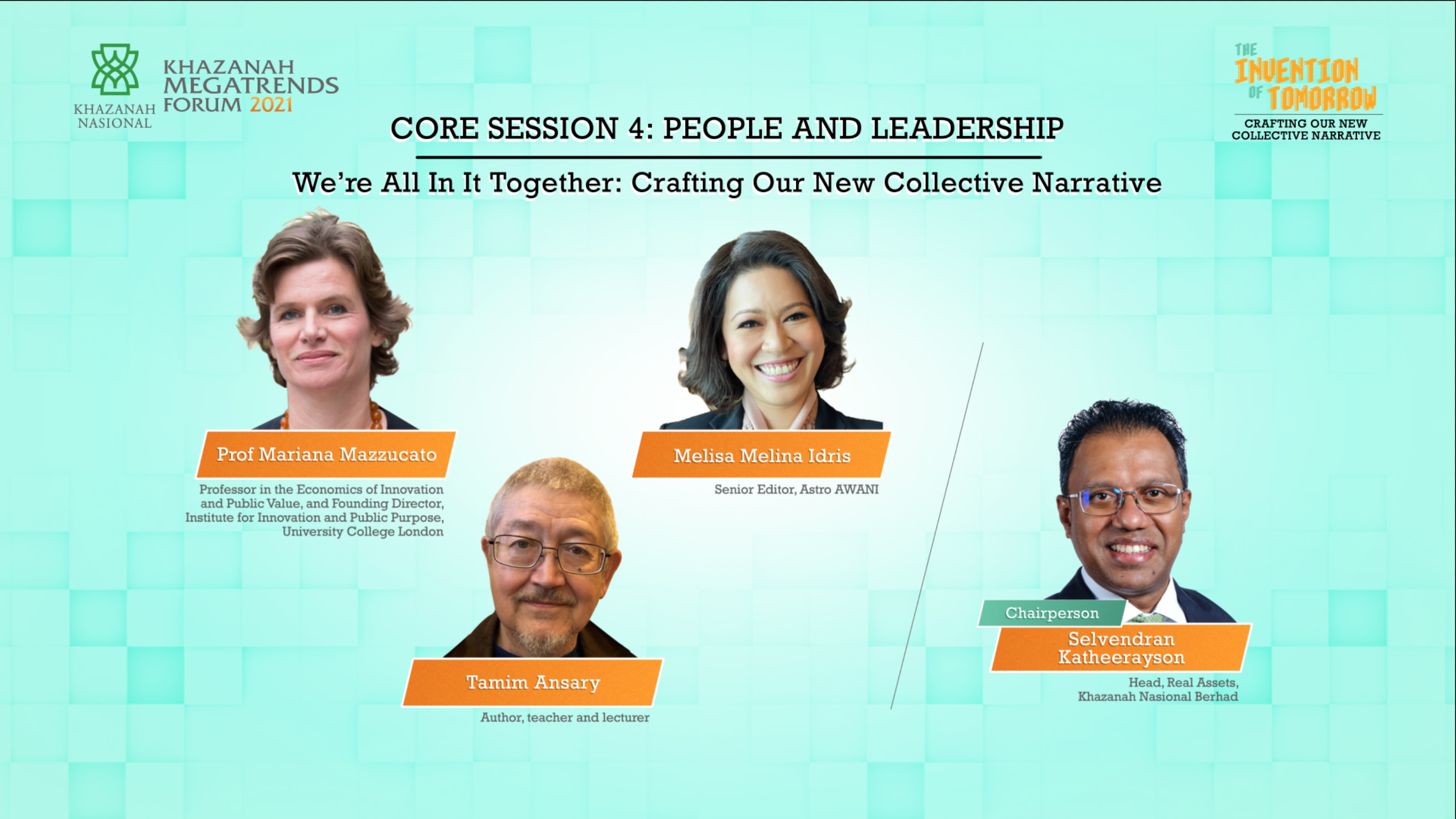Session Summary
Because of technology-induced interconnectedness, we live in the same room but we haven’t learned to speak a common language yet.
Some regions like Europe have been able to build a world in common.
This has kept the concept of many little tribes that built a world that provided a familiar environment across borders.
The common language we need in this era has to do with terms of discourse and how we make meaning of the language we are using.
What gives meaning to the terms we use is the larger social context which comes down to a shared narrative.
Globally, we have yet to realise a common world.
Our problem stems from the fact that we have yet to understand one another, and to realise a common world, we need to carry on the conversation.
There is a positive sense that we are in the midst of putting together a larger narrative. Here is a need for a mission map to provide institutional frameworks that will survive ideological vested interests and political cycles.
The traditional sector-focused approach needs to be expanded to design policy instruments that foster intersectoral mentality.
Many subsidies, guarantees and recovery funds are available, but they are reactive in nature instead of aimed at changing the status quo. To optimise resources, finances should be funnelled towards becoming catalytic instruments for innovation.
Local movements push for the desired changes.
For example, labour movements in the past have led to changes in working conditions such as having weekends off and voting rights for black people. The inclusion of civil society in influencing governance should be something that more countries look at.
Governments should focus on improving internal expertise and reducing the overreliance on external consulting companies.
Dynamic capabilities within the public sector should be built through training to improve capacity on the ground.
As there is no immediate threat of climate crisis and no visible cause-and-effects, the issue of climate change becomes “hard to tell, and hard to sell” in Malaysia.
The importance of multilingual storytelling rooted in a local context.
Malaysia should be wary about veering towards wholesale, Western-focused framing of climate change. Issues of climate change should not just be urban- and Western-centric.
More attention needed for climate urgency.
News in Malaysia has been mostly focused on flash floods and freak storms but lack the link to climate change, resulting in low climate urgency. Political leaders need to realise their role in creating climate discourse.
The rising power of media holds the potential for both positive and negative impacts on driving the collective narrative.
Media capitalising on news as a business. The news sector currently caters to different market segments with news blended into entertainment and media for commercial profits. This has resulted in an indulgence of an individual’s social, political and scientific theories to the point that they control the narrative of the world that only they want to hear.
However, the transformation of media has also brought about positive changes.
For example, politicians are able to have discourse with the public through social media and smaller, independent entities are able to overcome the barrier and contribute to the collective narrative.
Leveraging on creative arts to raise awareness.
Malaysia should be wary about veering towards wholesale, Western-focused framing of climate change. Issues of climate change should not just be urban- and Western-centric.
More attention needed for climate urgency.
A social mission does not require a top-down approach but rather an inspirational movement which can be realised through creative arts such as documentaries to help people imagine the world they want to live in.
